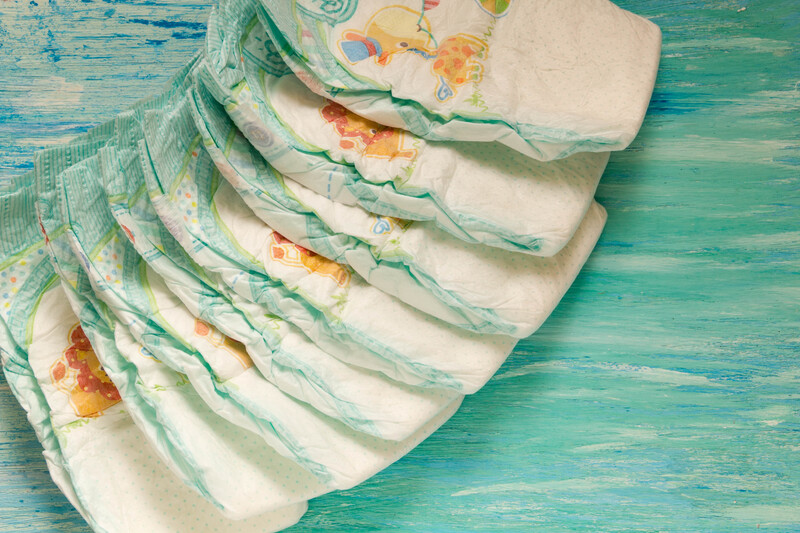Simple Steps for Ethically Disposing of Used PPE Waste
The surge in personal protective equipment (PPE) usage--face masks, gloves, face shields--has revolutionized how we protect ourselves, especially due to global health crises. However, this also raises a significant challenge: how do we properly and ethically dispose of used PPE waste to prevent environmental harm?
Improper disposal of PPE waste is not just a sanitary issue. If not managed responsibly, it contributes to marine pollution, landfill overflow, and hazards for waste management workers. The following comprehensive guide provides simple steps for ethically disposing of used PPE waste, ensuring you remain eco-conscious and socially responsible.

Understanding the Importance of Proper PPE Waste Disposal
PPE waste, such as disposable masks and gloves, is largely made from plastic-based materials like polypropylene. When irresponsibly discarded, these materials can take hundreds of years to decompose, often ending up in oceans or entering the food chain through microplastics.
- Human Health Threats: Used PPE may carry infectious agents, posing risks of contamination.
- Environmental Impact: Non-biodegradable PPE pollutes landscapes and waterways.
- Wildlife Concerns: Animals can ingest or become entangled in discarded PPE waste.
With these dangers in mind, ethical and eco-friendly disposal of PPE is not optional--it's a duty for community health and planetary well-being.
Ethical PPE Waste Management: Why It Matters
Ethically disposing of used PPE waste extends beyond simply throwing items in the trash. It's about protecting sanitation workers, minimizing pollution, and fostering a sustainable community. Here are compelling reasons to prioritize responsible disposal:
- Prevents Contamination: Proper handling and separation of PPE waste safeguard both the public and waste management staff from exposure to pathogens.
- Reduces Landfill Load: Proper sorting allows for some materials to be recycled or converted into energy, reducing landfill accumulation.
- Protects Wildlife: Correct disposal prevents PPE from entering natural habitats, thus protecting animals.
- Encourages Responsible Habits: Leading by example can inspire others to follow ethical and sustainable waste practices.
Types of PPE and Their Environmental Impact
Before delving into practical steps, it's crucial to understand the various types of PPE in use and their environmental implications. Below is a breakdown:
- Disposable Face Masks: Often made from layers of polypropylene, masks can shed microplastics.
- Gloves: Medical gloves are typically composed of nitrile, latex, or vinyl--materials that persist in the environment for centuries.
- Face Shields: Usually crafted from polycarbonate or PET plastic, both are recyclable but rarely processed appropriately.
- Protective Gowns and Coveralls: The plastics or synthetic fabrics used are seldom recycled, adding to landfill waste.
Recognizing the material composition of your PPE is the first step in making better disposal choices.
Simple Steps for Ethically Disposing of Used PPE Waste
Step 1: Know Your Local PPE Waste Guidelines
Start by researching your municipality's waste management guidelines regarding PPE disposal. Not all regions handle PPE waste the same:
- Some cities classify used PPE as infectious medical waste.
- Others suggest sealing it in plastic bags and placing it with general waste.
- Certain localities have special PPE collection bins in public areas.
If unsure, consult your local public health department or waste management authority's website.
Step 2: Separate PPE from Regular Recyclables
Do not toss used PPE into your standard recycling bin! Most curbside recycling programs are not equipped or authorized to handle contaminated PPE. Mixing PPE with recyclables:
- Endangers recycling facility staff
- Contaminates the entire batch of recyclables, leading to landfill disposal
Designate a dedicated bag or bin for used PPE waste at home and in the workplace.
Step 3: Safe Handling Practices to Protect Yourself and Others
Always handle used PPE with care. Follow these safety tips:
- Wash your hands before and after touching used PPE.
- Never touch your face while handling PPE waste.
- Seal PPE in a plastic or biodegradable bag before disposal.
- Double-bagging is ideal if the PPE was used around infectious individuals.
Step 4: Utilize Official PPE Disposal Sites or Bins
Many communities and organizations have introduced official PPE drop-off locations, especially at:
- Hospitals and clinics
- Pharmacies
- Essential workplaces
- Public transport hubs
When available, use these specialized bins, which are designed for safe collection and downstream treatment of PPE waste.
Step 5: Never Litter Used PPE in Public Spaces
Littered PPE is an eyesore and a health hazard. Masks and gloves thrown on sidewalks, beaches, or parks diminish community hygiene and can potentially spread pathogens. Always carry a small, sealable bag with you to store used PPE until ethical disposal is possible.
Step 6: Consider Reusable PPE Options Where Safe
One of the most effective ways to minimize PPE waste is to opt for reusable items wherever safe and permitted.
- Cloth Masks: Choose masks that can be washed and reused, following CDC or WHO recommendations.
- Reusable Face Shields: Clean them with approved disinfectants after each use.
Make sure reusable items are consistently sanitized to prevent disease transmission.
Step 7: Explore PPE Recycling Programs
Some innovative companies and environmental initiatives are piloting PPE waste recycling projects.
- Certain pharmacies or supermarkets may participate in take-back programs for disposable masks or gloves.
- TerraCycle and other global companies have established "Zero Waste Boxes" for PPE collection and recycling.
- Check with large employers or community centers for local pilots.
Note: Never put used PPE in standard recycling unless specifically instructed by your waste handler.
Step 8: Educate Your Peers and Community
Ethical disposal of PPE waste is a collective effort. Inform your family, colleagues, and friends about the risks of improper disposal. You can:
- Share guidelines on social media
- Request your employer or local council to install PPE waste bins
- Host workshops or distribute flyers on eco-friendly PPE disposal methods
Ethical PPE Waste Disposal in Workplaces and Institutions
Workplaces and institutions generate large quantities of single-use PPE. As a business owner, manager, or facility operator, you can foster an ethical PPE waste disposal culture by:
- Providing clearly marked PPE disposal bins at strategic points (entrances, locker rooms, cafeterias)
- Training staff on safe PPE disposal protocols
- Working with certified waste management services for hazardous and medical waste
- Posting instructional signs detailing PPE waste segregation and collection
- Regularly auditing PPE waste management systems for compliance and improvement
Legal and Regulatory Framework for PPE Waste Disposal
Different countries and regions have distinct legal requirements for managing PPE waste. For example:
- In the United States, the Occupational Safety and Health Administration (OSHA) outlines medical waste handling standards.
- European Union directives classify healthcare-derived PPE as hazardous, requiring special disposal measures.
- Developing regions may have less regulation; however, following best practices helps protect local communities and ecosystems.
Stay updated on your local laws and follow them accordingly to avoid fines and ensure ethical management.
Innovative Solutions and Future Directions in PPE Waste Management
Researchers and environmentalists are seeking greener solutions for PPE waste:
- Biodegradable PPE: Companies are developing eco-friendly mask materials that break down quickly when discarded.
- PPE-to-Energy Conversion: Advanced waste-to-energy plants can safely incinerate PPE with minimal emissions, generating electricity.
- Plastic Upcycling: Some firms are turning used masks and gloves into road construction materials or industrial products.
- Public Awareness Campaigns: Cities worldwide are implementing educational outreach aimed at proper PPE disposal.
While these innovations scale, the responsibility remains with individuals and organizations to adopt safe, ethical PPE disposal habits today.

Frequently Asked Questions (FAQs) on PPE Waste Disposal
Can I recycle disposable masks and gloves in my household recycling?
No. Disposable PPE is not accepted in standard recycling streams and should be disposed of with general waste, unless a specialized PPE recycling program exists in your area.
How should I dispose of PPE that may be contaminated with infectious material?
Seal it tightly in a plastic bag (double-bag if necessary) and dispose of it as directed by local health authorities--often in the general waste, or as medical waste in healthcare settings.
Are biodegradable gloves and masks better for the environment?
Yes--these products decompose more quickly, resulting in less environmental impact. Opt for certified biodegradable or compostable PPE where safe and available.
Should I cut the straps of masks before disposal?
Yes. Cutting ear loops or straps prevents wildlife from becoming entangled in discarded masks, reducing the risk to animals in the environment.
Conclusion: Making Ethical PPE Waste Disposal a Daily Habit
Simple, proactive steps can ensure that the PPE waste generated by individuals and communities does not harm public health, wildlife, or ecosystems. By ethically disposing of used PPE waste, you join a movement of responsible global citizens safeguarding our planet for future generations.
- Keep reusable PPE clean and ready for use
- Follow local waste guidelines diligently
- Educate and involve others in PPE disposal best practices
Every mask, glove, or shield disposed of responsibly is a step toward a cleaner, healthier world.
Let's commit--today and every day--to making ethical PPE waste management part of our daily routines.
